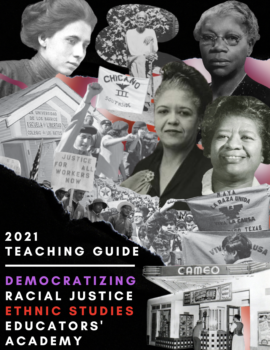 The Mexican American Studies Program at Northwest Vista College had a hand in developing these Teaching Guides and shaping evolving Ethnic Studies programs in Texas. UTSA was awarded a three-year, $5 million grant from The Andrew W. Mellon Foundation in 2021 and NVC was selected to receive a three-year sub-award to participate in the project.
The Mexican American Studies Program at Northwest Vista College had a hand in developing these Teaching Guides and shaping evolving Ethnic Studies programs in Texas. UTSA was awarded a three-year, $5 million grant from The Andrew W. Mellon Foundation in 2021 and NVC was selected to receive a three-year sub-award to participate in the project.Copyright © 2022 Northwest Vista College - My La Revista